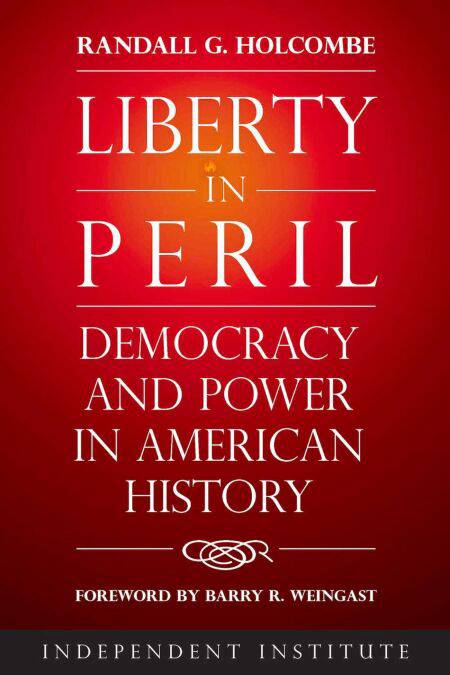
- Retrait gratuit dans votre magasin Club
- 7.000.000 titres dans notre catalogue
- Payer en toute sécurité
- Toujours un magasin près de chez vous
- Retrait gratuit dans votre magasin Club
- 7.000.0000 titres dans notre catalogue
- Payer en toute sécurité
- Toujours un magasin près de chez vous
16,76 €
+ 16 points
Format
Description
When the United States was born in the revolutionary acts of 1776, Americans viewed the role of government as the protector of their individual rights. Thus, the fundamental principle underlying the new American government was liberty. Over time, the ideology of political “democracy”—the idea that the role of government is to carry out the “will of the people,” as revealed through majority rule—has displaced the ethics of liberty. This displacement has eroded individual rights systematically and that history is examined in Liberty in Peril by Randall Holcombe in language accessible to anyone.
The Founders intended to design a government that would preclude tyranny and protect those individual rights, and the Bill of Rights was a clear statement of those rights. They well understood that the most serious threat to human rights and liberty is government. So, the Constitution clearly outlined a limited scope for government and set forth a form of governance that would preserve individual rights.
The federal government’s activities during two world wars and the Great Depression greatly increased government’s involvement in people’s lives. By the time of Lyndon Johnson’s “Great Society,” the depletion of rights and the growth of the activities of political democracy was complete. By the end of the 20th Century the fundamental principle underlying the U.S. government was now political power and not liberty. Public policy was oriented toward fulfilling the majority rule with the subsequent increase in government power and scope.
Holcombe argues that economic and political systems are not separate entities but are intimately intertwined. The result is a set of tensions between democracy, liberty, a market economy, and the institutions of a free society. All those interested in the evolution of American government, including historians, political scientists, economists, and legal experts, will find this book compelling and informative.
The Founders intended to design a government that would preclude tyranny and protect those individual rights, and the Bill of Rights was a clear statement of those rights. They well understood that the most serious threat to human rights and liberty is government. So, the Constitution clearly outlined a limited scope for government and set forth a form of governance that would preserve individual rights.
The federal government’s activities during two world wars and the Great Depression greatly increased government’s involvement in people’s lives. By the time of Lyndon Johnson’s “Great Society,” the depletion of rights and the growth of the activities of political democracy was complete. By the end of the 20th Century the fundamental principle underlying the U.S. government was now political power and not liberty. Public policy was oriented toward fulfilling the majority rule with the subsequent increase in government power and scope.
Holcombe argues that economic and political systems are not separate entities but are intimately intertwined. The result is a set of tensions between democracy, liberty, a market economy, and the institutions of a free society. All those interested in the evolution of American government, including historians, political scientists, economists, and legal experts, will find this book compelling and informative.
Spécifications
Parties prenantes
- Auteur(s) :
- Editeur:
Contenu
- Nombre de pages :
- 356
- Langue:
- Anglais
Caractéristiques
- EAN:
- 9781598133349
- Date de parution :
- 31-08-19
- Format:
- Ebook
- Protection digitale:
- Adobe DRM
- Format numérique:
- ePub

Les avis
Nous publions uniquement les avis qui respectent les conditions requises. Consultez nos conditions pour les avis.






